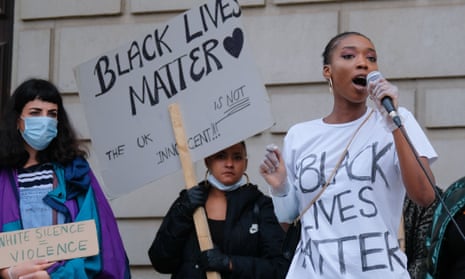Opportunities for women in academia have improved enormously during my 30-year university career. It seems good news, doesn’t it? But this apparently positive statement needs a health warning. A more accurate declaration would be: some women have found their opportunities much improved; other women have not.
Many white, middle-class women have benefited from pressure to address inequality. But women of colour have still found the door firmly shut in their face.
Some of the stark contrasts in how universities approach institutional inequalities came into focus after the murder of George Floyd and the subsequent global protests, including UK cities and towns. Universities’ social media feeds sprang into action, sensing perhaps the appeal of the Black Lives Matter movement. Public statements were released, signalling institutions’ support for #BLM and their commitment to combating racism, and offering support for staff and students.
These gestures did not, by and large, acknowledge the structural and institutional racism persisting on their campuses. UK universities with the highest attainment gaps – regularly above 20% – between their black, Asian and minority ethnic and white students, were still comfortable proudly to signal their support for #BLM.
It is just possible that racial inequalities will be addressed, but a more likely scenario is that as the summer progresses, life will return to normal. Race, it seems, is still an ephemeral issue, even at a time of overt brutality.
And yet gender equality has remained a priority. In UK higher education, white women have been the main beneficiaries of equalities policymaking. They have gained positions as senior managers, professors and vice-chancellors. About 23.9% of professors are white women; only 2.1% are black and Asian minority ethnic women. There are 40 female vice-chancellors, and only one is black. This precedence of gender over race has resulted in a hierarchy of oppression in which white women’s experiences are privileged above that of women – and men – of colour.
The trouble is that in universities’ equalities work, they conflate gender and race and in doing so give priority to white women. In my own research with Holly Henderson, assistant professor of education at Nottingham University, I compared institutions’ involvement with equality initiatives such as the Athena Swan charter – intended to advance women’s careers in higher education and research – and the race equality charter.
I found that 48 institutions were members of the REC, with 10 of those holding a bronze award. By contrast, 159 were members of the Athena Swan charter, holding a total of 766 institution-wide and departmental awards, ranging from bronze to gold. By investing time, money and resources on gender policies and initiatives, universities could be seen to be addressing structural inequalities, but do so without focusing on race.
The myth often peddled is that we must choose either gender or race equality – we couldn’t possibly look at both at once. One academic told me: “I think there is a greater need to focus on gender than race; that is more justified because women make up over 50% of the academic workforce.” So race takes a back seat.
Researching the subject, I found that when conversations about race are introduced, they are seen as secondary, an “add on” because the standard practice is one where gender is considered more important (and valued) than race. Addressing racial inequalities is seen as time consuming, adding to already overloaded workloads. In contrast, work on gender is seen as worthwhile and contributing directly to an equalities agenda and more deserving than race.
The truth is, many people find women’s career progression and the frustrations they face less awkward to discuss. One academic told me: “It’s an easier conversation to have than about race. People can easily talk about better provision for childcare for women. When it comes to talking about race, it’s harder. No one wants to go there in terms of institutional racism – you know that’s a conversation that institutions don’t really want to have.”
Universities’ knee-jerk outpourings on racial equality are merely rhetoric. They are used as badges, showcasing inclusion, with no evidence in outcomes or practice.
In six months’ time it will be business as usual. Universities will play the “diversity card” yet continue to focus on gender. White people will work to maintain the status quo and protect their own positions of power and privilege.
To make a difference, universities need to acknowledge the shameful, sad, sorry state of affairs they have been complicit in perpetuating. A brave new (equal) world is not on the horizon just yet. If they are serious about issues of social justice, they must set an example to the rest of society. What universities do – or don’t do - matters.
Kalwant Bhopal’s recent book, White Privilege: the myth of a post-racial society, is published by Policy Press.









